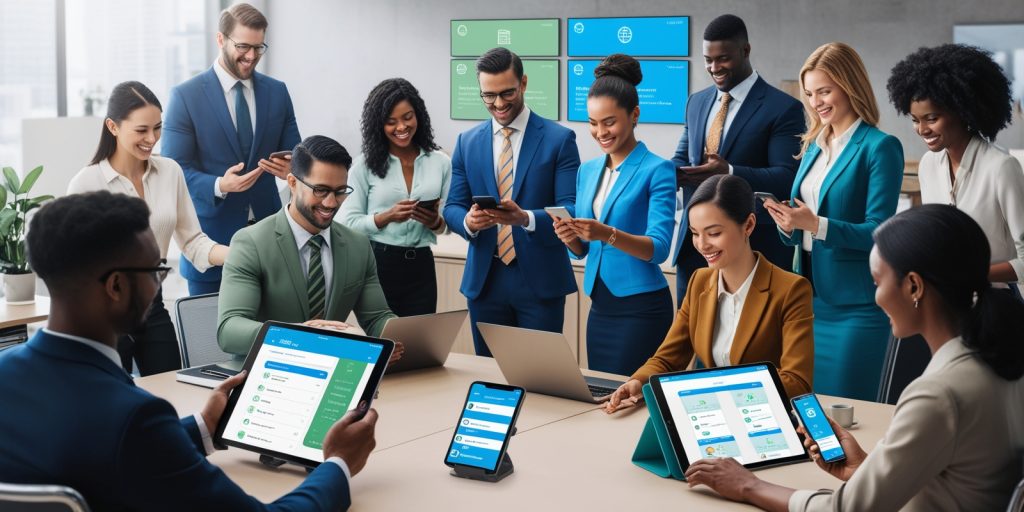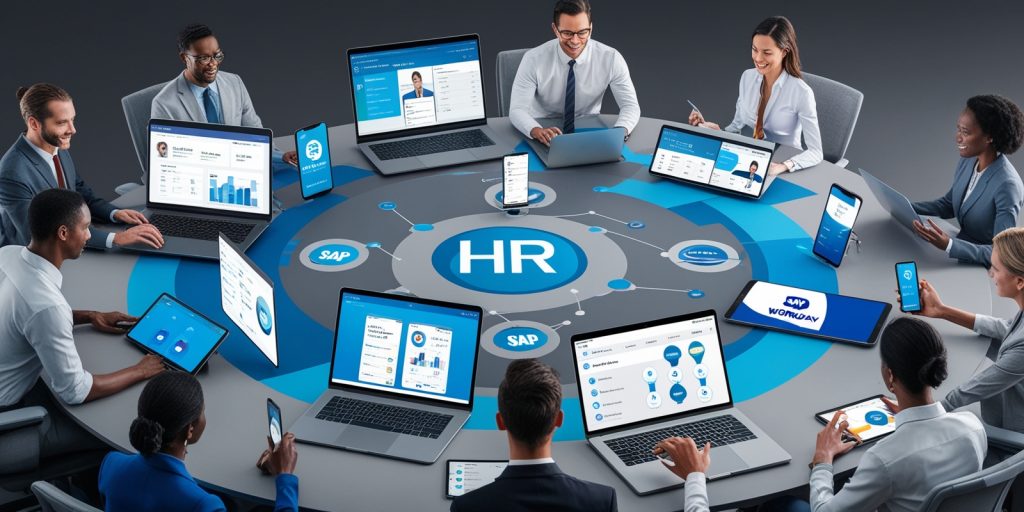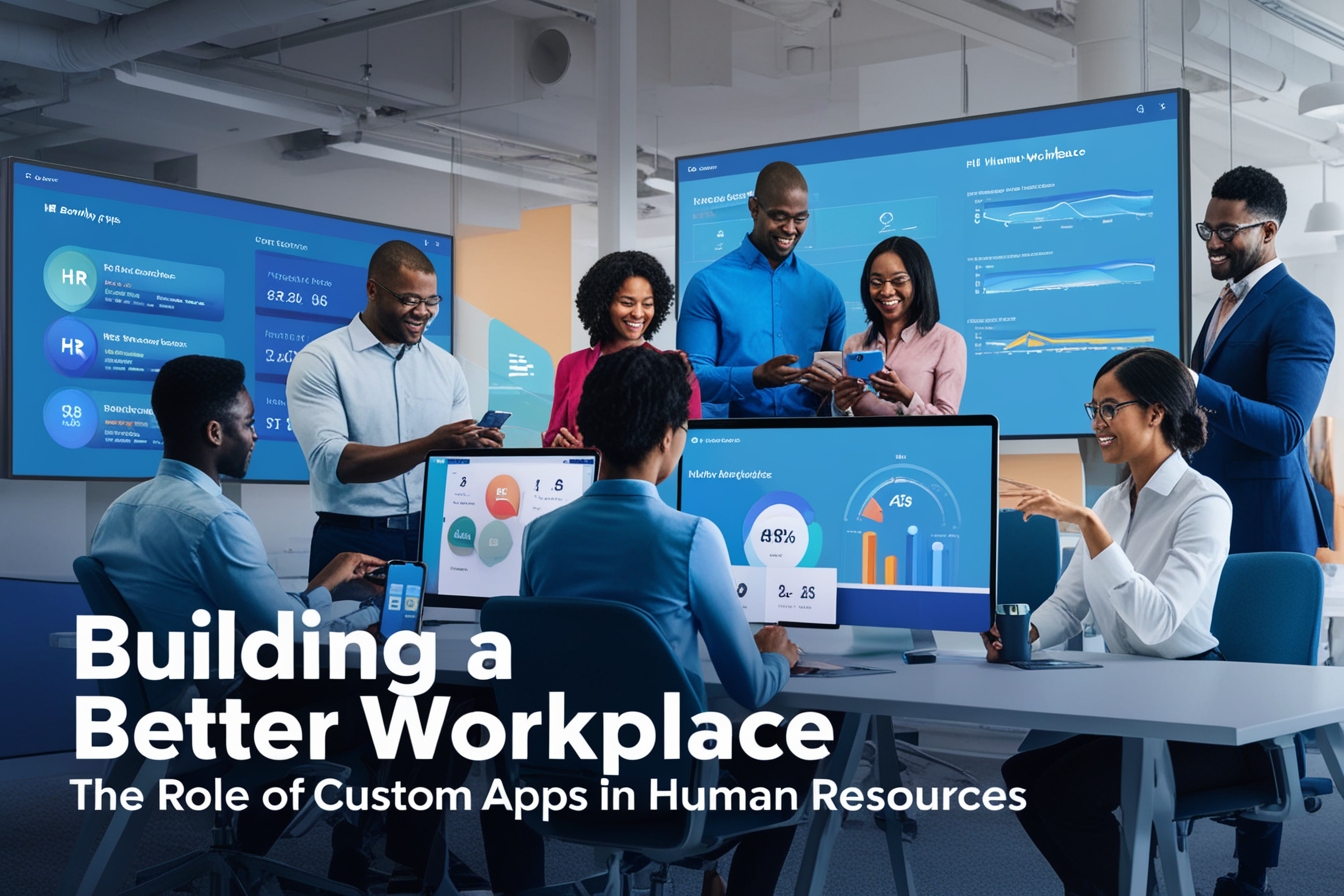Introduction:
Human Resources must keep up with new demands in today’s fast-changing work environment. HR faces many challenges in managing employees’ needs and ensuring the business follows legal rules.
To deal with such situations, traditional systems are often slow or outdated, leading to frustration for both HR teams and employees. That’s where custom applications come in. They help work faster and more efficiently.
In this article, we’ll explore how custom apps are changing this landscape and making workplaces better.
Custom Apps: A Solution for HR Problems
Customized applications provide a modern solution to all issues. Instead of relying on a one-size-fits-all system, companies can build apps that fit their exact needs. For example, a business may need an app that handles recruitment, payroll, and performance reviews all in one platform. With a custom app, it’s possible to create that exact tool.
They can automate repetitive tasks like scheduling interviews, sending reminders, and processing payroll. They also make it easier for employees to engage with HR. Instead of waiting for someone to answer a question, they can use an app to check their benefits or request time off quickly. Custom HR apps can streamline steps like paycheck processing, enabling employees to easily access detailed information such as the ytd paycheck, helping them understand their earnings throughout the year better. This improves the overall employee experience and saves time for the HR team.
Steps to Building a Custom HR App
Creating a custom HR app may seem complex, but with the right steps, it becomes manageable. The first step is identifying the specific problem the app will solve, such as recruitment, performance tracking, or payroll. Clearly defining the app’s purpose helps guide its design and functionality.
Once the goals are clear, the next step is planning the features. These should be simple, user-friendly, and tailored to the HR team’s needs. For hybrid workplaces, integrating desk sharing software can help manage office space efficiently alongside HR functions.
In fact, experts at DreamWalk Apps believe that careful research, a clear design, and continuous testing are essential to creating a successful app. This ensures the app is both functional and easy to use. Thus, specialized app developers provide attention to detail and a deep understanding of user experience.
Improving Employee Engagement
Employee engagement is critical to a successful business. When employees feel engaged, they are more productive and motivated. Custom apps play a significant role in improving engagement by allowing employees to access important information easily, whether it’s checking their benefits, reviewing their pay, or tracking their performance.

For example, a self-service portal within an app can let employees request time off or update their personal details without needing to go through HR. This gives employees more control over their work life, making them feel valued. Custom apps can also include feedback tools, where employees can share their opinions or concerns with the HR team. This two-way communication helps build a stronger relationship between employees and the company.
Ensuring Compliance and Data Security
One of the most important responsibilities of HR is making sure the company follows labor laws and regulations. This is especially important when it comes to employee data. Companies need to protect sensitive information like salaries, performance reviews, and personal details. A well-built application can help automate compliance tasks and ensure data security.
Customized applications can have features that automatically generate reports for audits, track working hours to meet labor laws, or alert HR when certain actions need to be taken. This reduces the risk of human error and ensures that the company always follows the rules. Additionally, these apps can include security measures like encryption to protect employee data from unauthorized access.
Integrating Applications with Existing Systems
A common concern for businesses is whether a new custom app will work with their existing HR systems. The good news is that developers can design applications that seamlessly integrate with other platforms. Whether a company uses SAP, Workday, or another system, custom apps can push and pull data between them, ensuring a smooth flow of information and preventing data silos.

For instance, if a company uses one system for payroll and another for performance tracking, a custom app can bring these together. Employees can access all their information in one place, making it easier for them to stay informed. For HR teams, integration reduces the need to manually transfer data between different platforms, saving time and reducing errors.
Conclusion
Personalized apps are transforming how businesses manage their people. By addressing specific needs, automating repetitive tasks, and improving engagement, these apps make HR departments more efficient and workplaces better. As technology continues to evolve, custom apps will remain a key tool in helping businesses adapt and thrive in a changing world.
Related Post:
Strengthening Your Human Resource Strategy with Top 26 HRMS Tools for 2025








